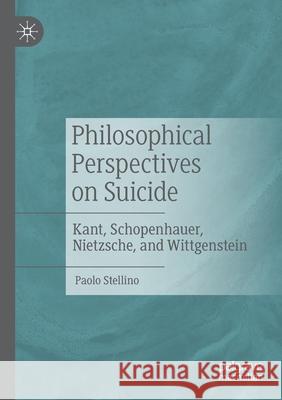Philosophical Perspectives on Suicide: Kant, Schopenhauer, Nietzsche, and Wittgenstein » książka
topmenu
Philosophical Perspectives on Suicide: Kant, Schopenhauer, Nietzsche, and Wittgenstein
ISBN-13: 9783030539399 / Angielski / Miękka / 2021 / 264 str.
Philosophical Perspectives on Suicide: Kant, Schopenhauer, Nietzsche, and Wittgenstein
ISBN-13: 9783030539399 / Angielski / Miękka / 2021 / 264 str.
cena 481,91
(netto: 458,96 VAT: 5%)
Najniższa cena z 30 dni: 462,63
(netto: 458,96 VAT: 5%)
Najniższa cena z 30 dni: 462,63
Termin realizacji zamówienia:
ok. 22 dni roboczych
Bez gwarancji dostawy przed świętami
ok. 22 dni roboczych
Bez gwarancji dostawy przed świętami
Darmowa dostawa!
Kategorie BISAC:
Wydawca:
SPRINGER
Język:
Angielski
ISBN-13:
9783030539399
Rok wydania:
2021
Ilość stron:
264
Waga:
0.35 kg
Wymiary:
21.01 x 14.81 x 1.52
Oprawa:
Miękka
Wolumenów:
01
Dodatkowe informacje:
Wydanie ilustrowane











